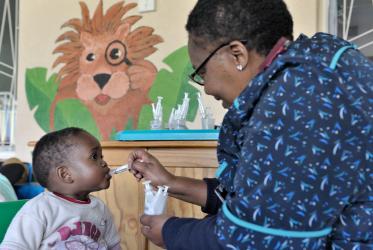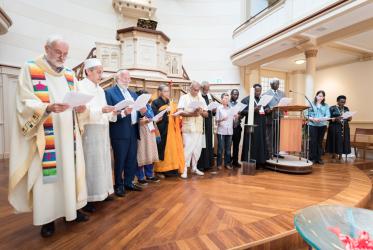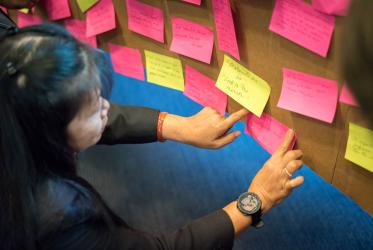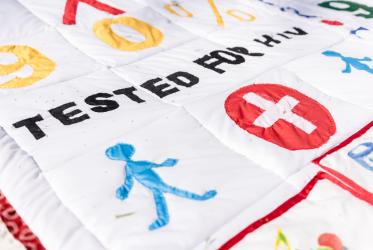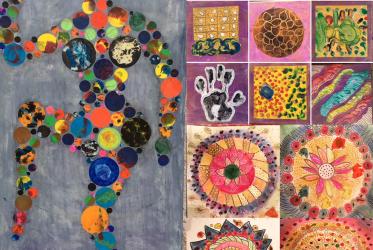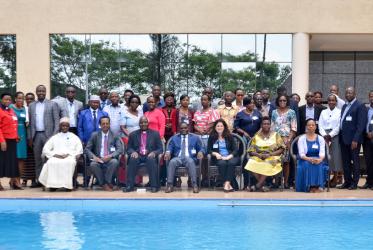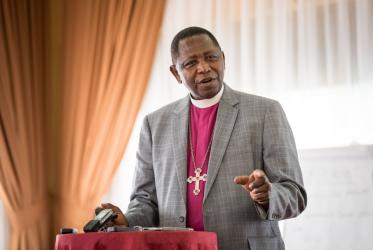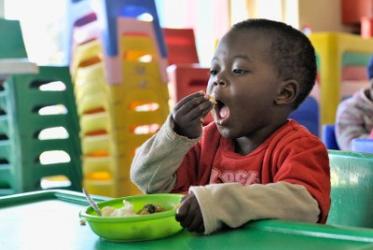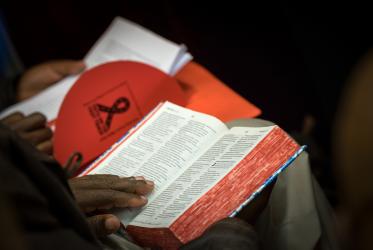Displaying 1 - 20 of 34
Dialogue addresses improving HIV testing and treatment for children
10 December 2018
WCC to ring with children’s voices across the world
16 November 2018
Las voces de los niños de todo el mundo resonarán en el CMI
16 November 2018
Working toward an AIDS-free generation
26 July 2018
Building bridges of faith in the HIV response
25 July 2018
Building Bridges in the global HIV response
25 July 2018
World AIDS Day 2017 - prayer service, exhibition, panel discussion
01 December 2017
Ecumenical Centre, Geneva
“Facing the storm of HIV, we can move together, be agents of change”
06 September 2017
“Es hora de tomar medidas: neutralicemos este virus”
19 June 2017
Bible study gives hope as youth reflect on HIV
02 November 2016

